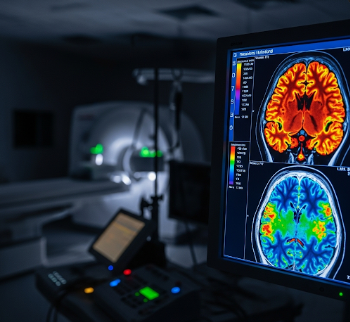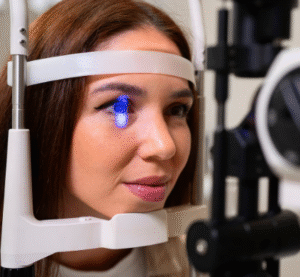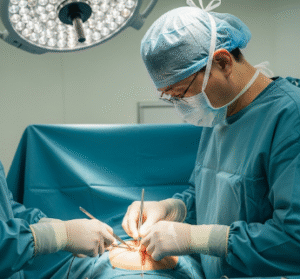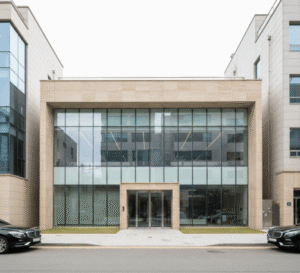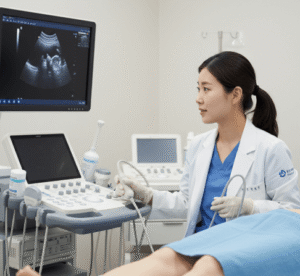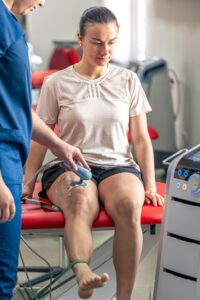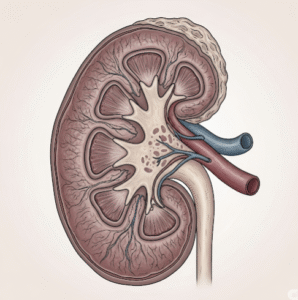Overview
Positron Emission Tomography (PET) scan is an advanced nuclear imaging technique that visualizes metabolic activity in tissues and organs. It is widely used for cancer detection, monitoring treatment response, evaluating heart disease, and diagnosing neurological disorders.
South Korea is recognized for state-of-the-art imaging centers, high-resolution PET scanners, and experienced radiologists, providing safe, accurate, and effective diagnostic services.
What is a PET Scan?
A PET scan uses radioactive tracers to evaluate how tissues and organs function at a cellular level. Key aspects include:
✔ Functional imaging: Shows metabolic activity rather than just structure.
➔ Tracer-based technique: A small amount of radioactive tracer (commonly FDG) is injected into a vein.
● High sensitivity: Detects early disease changes before structural abnormalities appear.
★ Combination imaging: Often paired with CT or MRI to provide precise anatomical localization.
PET scans are particularly useful for early cancer detection, staging, recurrence monitoring, cardiac perfusion assessment, and evaluating brain disorders such as Alzheimer’s disease or epilepsy.
What are the Benefits?
PET scans offer several advantages:
✔ Early disease detection, especially in cancer.
➔ Accurate staging and treatment monitoring.
● Non-invasive and relatively safe due to minimal radiation exposure.
★ Whole-body imaging for comprehensive evaluation.
➤ Enhanced diagnostic accuracy when combined with CT or MRI scans.
Procedure Details
1) How should I prepare for a PET Scan?
Preparation is crucial for accurate results:
✔ Fasting: Usually 4–6 hours before the scan; water intake is allowed.
➔ Medication review: Some medications may interfere with the tracer.
● Blood sugar management: Important for diabetic patients to avoid false positives.
★ Avoid strenuous exercise: 24 hours prior to prevent tracer accumulation in muscles.
➤ Remove metal objects: Jewelry and accessories can interfere with imaging.
2) What happens during the procedure PET Scan?
PET scanning is performed in a specialized imaging suite:
✔ Tracer injection: A small dose of radioactive tracer is injected intravenously.
➔ Uptake period: Patient rests quietly for 30–60 minutes to allow tracer distribution.
● Scanning: Patient lies on a table while the PET scanner detects radiation signals.
★ Combined scans: Often fused with CT or MRI to correlate metabolic activity with anatomical detail.
➤ Duration: The procedure usually takes 30–60 minutes; total appointment may take 2–3 hours including preparation.
Korean centers use high-resolution PET/CT and PET/MRI scanners for precise imaging and minimal radiation exposure.
3) What happens after a PET Scan?
Post-scan care is straightforward:
✔ Hydration: Drink plenty of water to help flush the tracer from your body.
➔ Resume normal activities: There are usually no restrictions.
● Follow-up: Radiologist interprets the images and sends a detailed report to your doctor.
★ Results discussion: Physician explains findings and recommends next steps.
➤ Minimal side effects: Rare allergic reactions to tracers; usually well-tolerated.
Risks / Benefits
Possible Risks:
✔ Exposure to low-level radiation
➔ Rare allergic reactions to tracer
● Mild injection site discomfort
★ False positives/negatives due to high blood sugar or recent activity
➤ Pregnancy consideration: Avoid unless essential
Major Benefits:
✔ Early and accurate disease detection
➔ Helps guide treatment planning and monitor therapy response
● Non-invasive and painless
★ Provides functional and metabolic insights beyond structural imaging
➤ Whole-body assessment for comprehensive evaluation
Recovery and Outlook
✔ Immediate recovery: No downtime; patient can leave immediately.
➔ Tracer elimination: Most radioactivity clears within 24 hours.
● Return to daily activities: Resume normal routine immediately.
★ Follow-up: Doctor reviews results and recommends next steps.
➤ Long-term outcome: Enables early diagnosis and optimized treatment strategies, improving prognosis.
When To Call the Doctor
Contact your doctor if you notice:
✔ Persistent injection site redness or pain
➔ Unusual allergic reactions
● Concerns about radiation exposure or pregnancy
★ Any unexpected symptoms post-scan
Best Korea Option / Process
South Korea provides expert PET scan services with:
✔ Leading hospitals: Samsung Medical Center, Asan Medical Center, Seoul National University Hospital.
➔ High-resolution PET/CT and PET/MRI scanners with advanced imaging software.
● Experienced radiologists: Skilled in detecting subtle metabolic abnormalities.
★ Comprehensive diagnostic services: Integrated imaging, biopsy, and oncology support.
➤ Medical tourism support: Translation, appointment coordination, and follow-up care for international patients.
✅ Highlights:
✔ PET scan visualizes metabolic activity for early disease detection
➔ Minimally invasive, safe, and painless
● Whole-body imaging enhances diagnostic accuracy
★ Risks include minor radiation exposure and rare allergic reactions
➤ Korean hospitals offer advanced technology, expert interpretation, and complete follow-up care

